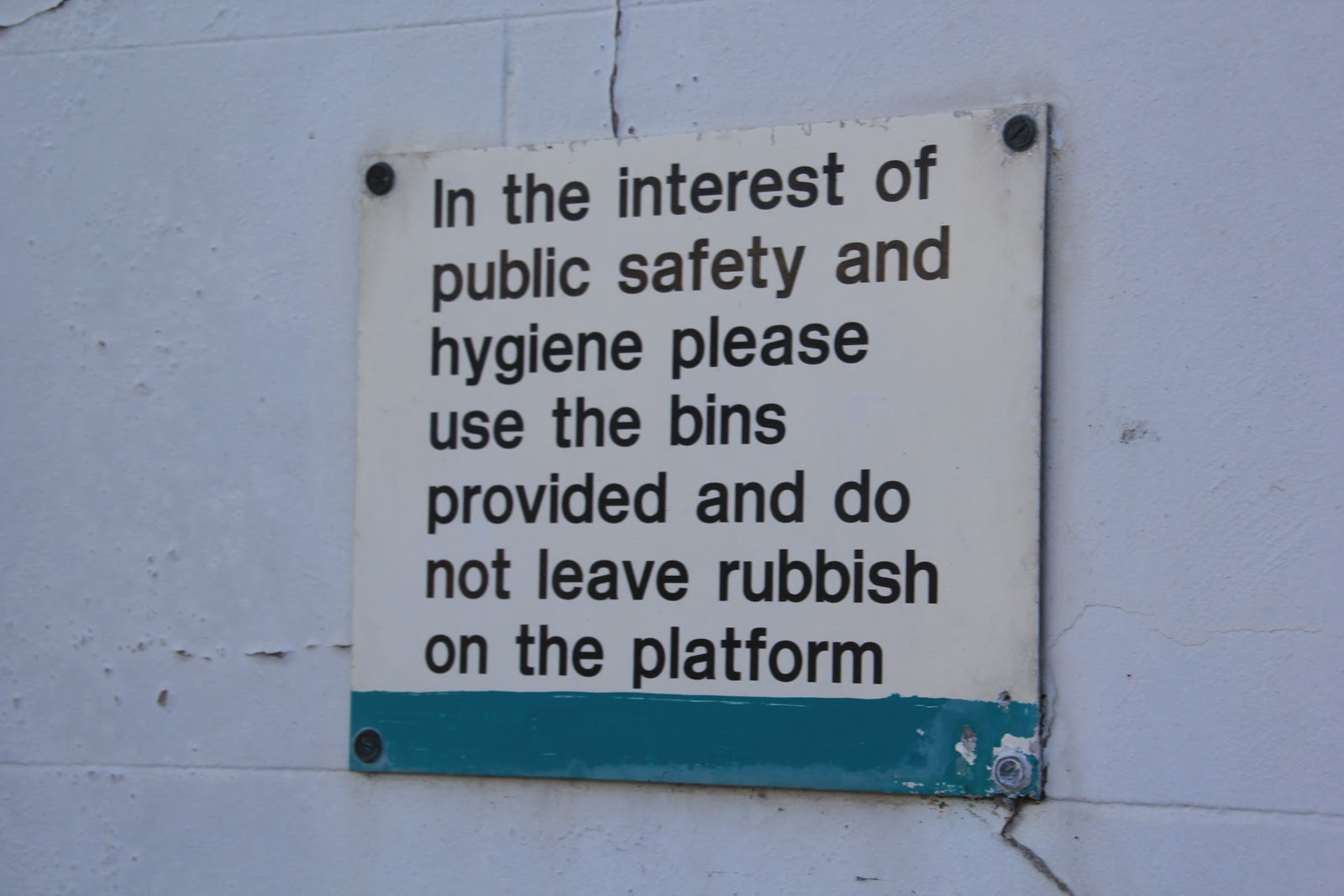The privatisation of British Rail in the 1990s makes me really mad, and I wasn't even alive when it happened! I understand that British Rail did a lot of closures of stations and lines, but I think we can blame a lot of this on Ernest Marples (evil), who wanted business for his company in building the motorways. Privatisation has led to more public money being put into the railway than under British Rail, and yet all the profits go to the shareholders of the Train Operating Companies (and ROSCOS, who are also evil)!
Another thing it has done (not the main problem at all but it upsets me) is make variations in all the signs and liveries! Each company wants to have its own corporate identity, and so Rail Alphabet was mostly gone, apart from on Merseyrail for some reason, and weird liveries were introduced.
Here's an example of the visual mess that privatisation has caused! Gobowen station is still primarily painted and decorated in the style of Arriva Trains Wales, but with Transport for Wales stickers on the signs and with Transport for Wales posters in the blue-framed notice boards. It's very upsetting!
In addition to this, there is one sign I noticed that dates even further back. The below sign has a crudely painted blue stripe, signifying Arriva Trains Wales, but under that stripe you can just about see the logo for Wales & Borders, the TOC that came before. The fact that TOCs can change so quickly means that there is not a rational reason to change all these signs, and when they do it creates a lot of waste.To add to the confusion, Labour have said that they will only end franchise contracts at the end of their pre-agreed term. This means that by the end of Labour's first term in government, some contracts will still be running. This seems like a disorganised method which will prolong a sense of transition and confusion, and seems motivated by a desire to look "sensible" and "pragmatic".
The point of privatisation was always very clearly a money-making exercise, and it caused deaths due to Railtrack's negligence in the late 1990s and early 2000s, which should not be forgotten!





No comments:
Post a Comment